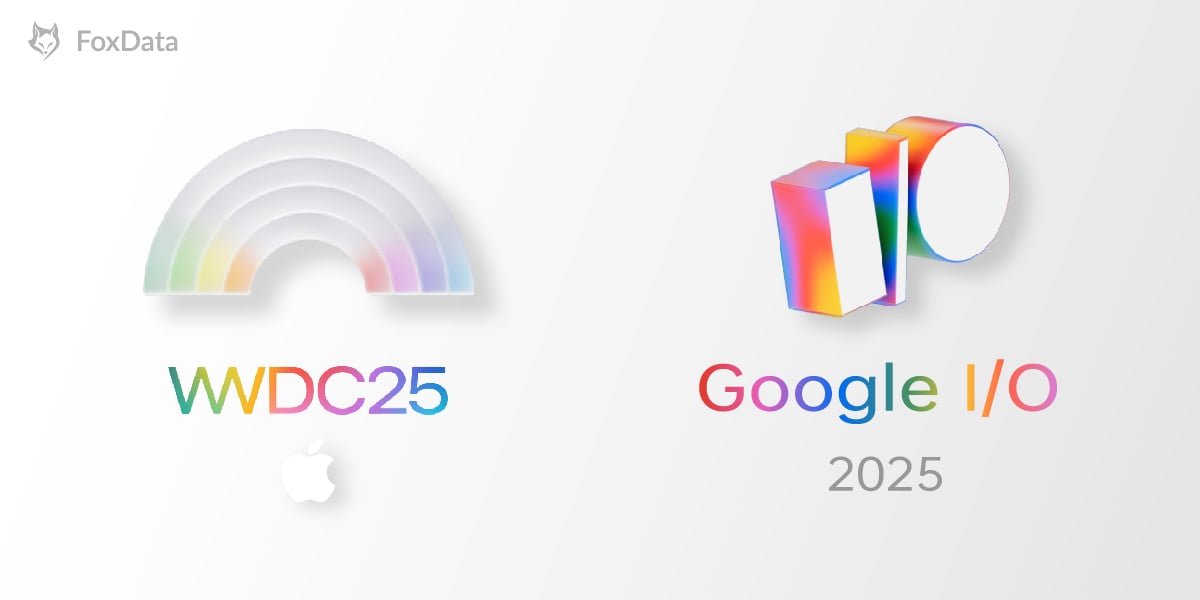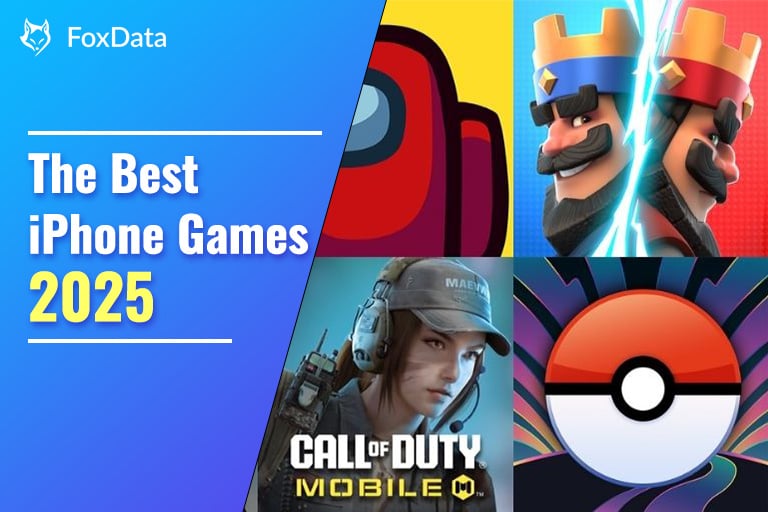From Google I/O to WWDC25: Tech Giants Reshape the Next Decade With AI

On the 2025 tech stage, AI transcends its status as a cutting-edge lab experiment, rapidly becoming the core force reshaping products, experiences, and ecosystems for tech giants. The recently concluded Google I/O 2025 showcased the deep integration of AI models and multimodal interaction, while the upcoming Apple WWDC25 will center around Apple Intelligence and Siri, marking the most significant system evolution in a decade.
An "AI operating system" era, with Gemini at its core, is taking shape, and a new AI-native ecosystem, symbolizing iOS's new interactive logic, is about to launch. This tech "tale of two cities" reveals a common trend: AI is comprehensively penetrating search, communication, content creation, software development, and even hardware itself, reconstructing our understanding of smart devices.
AI emerges as the core driver, with Google and Apple leading platform innovation, while FoxData continues to empower the digital future with intelligent tools.
Google I/O 2025 Review:
Gemini Leads Comprehensive AI Upgrades, Dual Leap in Experience and Productivity
The 2025 Google I/O conference, centered on "AI at the heart of everything," systematically presented the comprehensive upgrades and expansion of the Gemini series models.
1. Gemini 2.5 Pro introduced a new "Deep Think" mode, significantly enhancing its logical reasoning and complex instruction processing capabilities, and is widely available to developers via API. Simultaneously, with the high-performance, low-latency Gemini 2.5 Flash model, Google aims to cover more practical scenarios and accelerate the large-scale deployment of AI.
On the user side, the Gemini app has reached an astonishing 400 million monthly active users. The exclusive Gemini Live feature supports instant activation of the phone camera and screen sharing, allowing Gemini to "see the world and understand context," further enhancing personalization. Through the Gemini Personal Context feature, AI can access content from Gmail, Calendar, and Drive to generate more accurate suggestions and auto-replies for users.
2. In the generative content field, Google updated the Imagen 4 and Veo 3 models, providing users and creators with an immersive multimodal creation experience through the Flow image and video generation tools.
3. Experimental project updates were also exceptionally rich: Project Astra created an all-around AI assistant integrating voice, vision, and environmental perception; Project Mariner and Agent Mode enabled AI to perform web task agent capabilities for the first time, automatically completing multi-step actions such as online ticket purchases and browsing housing listings.
4. In terms of search and office experience, Google launched the AI Mode, adding multi-round dialogue, cross-page summarization, and information integration capabilities to the Search engine; Google Workspace tools such as Gmail and Google Meet also received AI writing, smart replies, and voice translation enhancements—marking that traditional workflows are also about to enter a new stage of intelligence and automation.
It is particularly worth mentioning that Google launched the locally operable multimodal model Gemma 3n and the XR smart glasses Project Aura, further expanding the terminal implementation of AI, strengthening its real-time response and privacy protection capabilities. Google is committed to promoting a paradigm shift from "AI driven by products → products driven by AI."
WWDC25 Preview
iOS 19 Interface Overhaul + Deep Siri Reconstruction, Two Major Upgrades Targeting the AI-Native Ecosystem
Apple's upcoming WWDC25 is seen as a crucial event for Apple's entry into the AI-native platform. According to current leaks and media predictions, iOS 19 will be the most significant visual and functional upgrade since iOS 7.
1. In terms of visual design, iOS 19 may introduce a Vision Pro-style design language. The system interface will extensively use Gaussian blur, transparent materials, and floating card styles, and will unify the App icon design into a circular format.
2. Regarding core AI integration, Apple Intelligence will be deeply integrated into Siri for the first time. Through large language models (LLMs), Siri will gain contextual understanding, enabling natural and coherent dialogue logic and more complex task processing capabilities. Rumors also suggest that iPhone users may be able to choose Gemini as the model engine in the future, opening a new chapter of AI cooperation between Apple and Google.
3. In terms of system functions, "AI battery management," real-time navigation summaries, large-scale automatic summary generation, and smart schedule management will evolve from "optional features" to "basic capabilities." In addition, multiple platforms, including iPadOS 19 (multitasking revamp), macOS 16 (interface unification), watchOS 12 (enhanced health monitoring), and visionOS 3 (enhanced air interaction), will be upgraded simultaneously, with fragmented experiences replaced by a highly unified AI architecture.
4. In terms of hardware, the M3 chip version of Mac Studio is also expected, as well as the new generation of AirPods Pro 3, which supports "real-time language translation" functionality. Apple will once again attempt to integrate AI into services and experiences through a combination of hardware and software.
AI is Restructuring the Ecosystem, and We Are Taking Action —
How FoxData Empowers Intelligent Growth with AI
Whether it's Google's Gemini ecosystem or Apple's Apple Intelligence platform, the shift in thinking of these tech giants points to a consensus: AI is no longer just a "functional plugin"; it is the "central intelligence" driving the new era of application structure and user experience.
As a service provider for data insights and digital operations, FoxData is also actively embracing this AI revolution, committed to embedding more intelligent components in its products to help clients gain faster insights, make more accurate decisions, and optimize more efficiently.
Our independently developed AI Review Summary feature is based on a generative AI engine, automatically extracting insightful summary abstracts from complex reviews, helping brands quickly grasp user sentiment trends, feature feedback, and potential pain points, thereby achieving a closed-loop improvement of reputation monitoring + user research.
In the future, we will continue to expand the application of AI in scenarios such as keyword optimization. FoxData is not just a data platform, but an AI partner assisting brands in achieving intelligent growth.
Summary
Looking ahead to Google I/O 2025 and the upcoming WWDC25, an industry-wide "platform reconstruction" based on AI is poised to explode. From models to functions, from systems to underlying architecture, AI is no longer a marginal technology but the main engine driving the evolution of every digital experience.
FoxData will continue to synchronize with global technology trends, not just observing the slightest movements of AI, but also transforming them into service value, accompanying each user into a smarter and more efficient data future.






